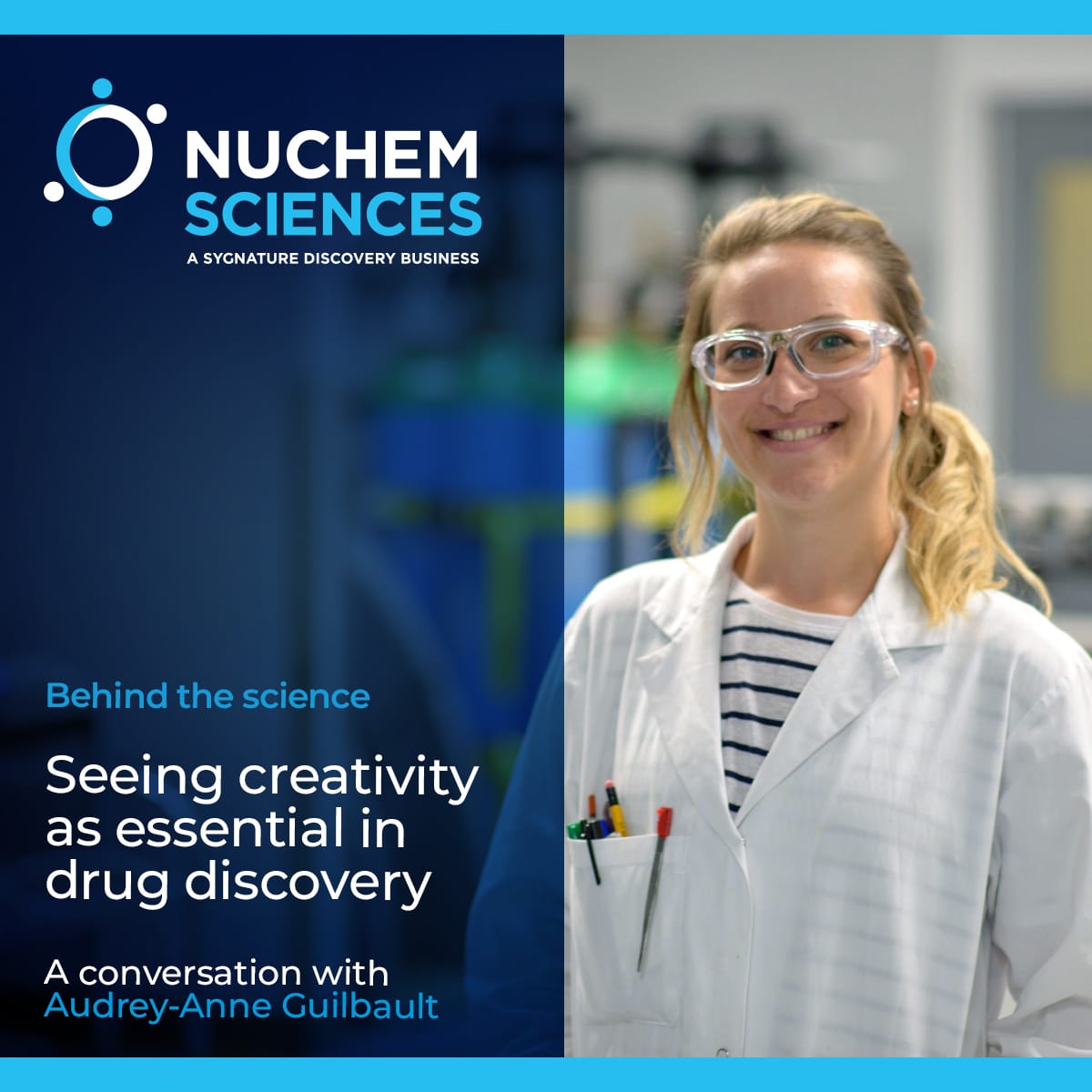Seeing creativity as essential in drug discovery
A conversation with Audrey-Anne Guilbault
Having grown up in a family of artists, Audrey-Anne Guilbault brings a creative approach to her work as a Research Scientist at OmegaChem. For Audrey-Anne, bringing non-obvious ideas to the table – alongside practical knowledge and experience – is essential to her work.
We spoke with Audrey-Anne about the importance of creativity when solving challenges in drug discovery and her move from teaching to a fulfilling career in researching.

What is your background? What convinced you to pursue a career in drug discovery?
My interest in drug discovery dates back to my time in CEGEP. At first, I wasn’t sure whether I wanted to go into pharmacy or pharmacology. But then, I took organic chemistry classes and my professor talked about the possibility of extracting ingredients from plants that could form the basis of medicines. It was like someone put what I wanted to do into words, and I knew I wanted to study the science of drugs.
So, I continued my studies in organic chemistry at the Université de Sherbrooke, where I got my bachelor’s degree in pharmaceutical chemistry and my master’s degree in organic chemistry. However, there was also a part of me that wanted to go into teaching – I’ve always been the person to help my sisters and friends with schoolwork. Also, when I finished my master’s in 2012, the majority of pharmaceutical companies in Montreal closed. So, I decided to teach chemistry and put the brakes on my studies for a while.
I had been teaching for three years when my passion for working in the laboratory came back. There has always been a part of me that loves research and organic chemistry, and that’s what encouraged me to apply for a job at OmegaChem. Since then, I have had the opportunity to work on some fantastic organic chemistry projects and become even more interested in research.
So, how would you describe a typical day at OmegaChem?
It’s like working in a kitchen, because when you arrive, you’re ready to prepare something. You look for a recipe, you dive into the literature, you look for a specific kind of reaction and see how you can adapt it to your needs. You look for the right reagents (or ingredients) for a reaction and then treat it to have a finished product.
But, as any chef will tell you, it’s not just about following the recipe. There are lots of things in our work that require practical knowledge and personal experience. Everyone is able to follow a recipe, but there are often obstacles that block our progress, and you need to find out what’s going wrong fast. That’s what I really love about this career: it’s a mix of observation, the way we handle materials, and making the right choices.
What kinds of skills do you need for that kind of work?
Precision and organizational skills are really important. However, I also think that creativity is essential. I grew up in a family of artists where I was the only scientist, and I bring a creative approach to my work. I often see things in a different way, which helps when you need a solution to a problem. When we need to fix an issue, I suggest ideas that can be beneficial but not necessarily obvious.
This job also requires great observation skills and a clear understanding of what is happening in a reaction. Working in this field involves non-stop problem solving, like in a kitchen. If you see a cake burning, you need to act fast, understand why it’s happening and try to stop it happening again.
It’s important to be patient too. We need to stay positive and be capable of seeing the good in the bad. Something might seem like it’s not working, but we need to remain hopeful and find a different way of approaching it.
How does this skillset help you navigate chemistry challenges?
I actually love challenges. They motivate me to find solutions in creative and collaborative ways. We had a big challenge recently, when eight of us were working on a high-priority project.
Normally, each scientist works on their own project. However, in this case, we needed to collaborate to get the result as quickly as possible. It was like we were all making a cake, but we were working without a set recipe. So, each scientist was working on a specific step of the reaction – for example, one person was making the buttercream, I was putting it in the oven, etc. This kind of collaboration can be rare, but it’s rewarding. It also helps us get better results faster. When we work together towards a same end goal, we can address challenges more effectively.
What convinced you to move to Lévis to work at OmegaChem?
Scientists can specialize in organic chemistry at a multitude of companies. But what sets OmegaChem apart is the location. It’s in Lévis, which is not a very big town. I come from a rural area in central Quebec and my partner comes from Abitibi. We were looking for a place where we could work in chemistry in a place that felt like home, but most pharmaceutical companies and CROs are in sprawling urban centers. So, the location and lifestyle here attracted us.
My partner works at OmegaChem too, which is fun! There are childcare services nearby and lots of outdoor activities. It doesn’t take as long to commute. It’s easier to buy a house and settle down here than in a big city. We are both very happy to have this life.
For you, what has been the most important moment in drug discovery history?
It’s not necessarily a positive story, but I remember being really struck by the story of thalidomide when I first heard it. Thalidomide was the drug that was given to pregnant women in the 1960s to treat nausea. At the time, the chirality of thalidomide was not well known. Thalidomide is a chiral molecule, which means that even though the “right-handed” molecule was effective as a treatment, the “left-handed” one had devastating effects.
When thalidomide was first released, it was seen as a safe treatment for pregnant women. However, it was later proven that it caused severe birth defects in their babies.
I first heard about this in organic chemistry class in university, and it really hit home. I realized how important it is to understand all the effects of a molecule and it reinforced my interest in drug discovery and organic synthesis.
What words of advice would you give to a young person considering a career in drug discovery?
Have confidence in yourself. Confidence is what makes a difference in discovery.
Don’t hesitate to use your creativity to find solutions to problems either. Creativity is the key to success and will distinguish you as a scientist.

Transform Ideas Through Science
A drug discovery and chemical development contract research organization.
News & Events
NuChem Sciences Inc.
2350 Rue Cohen Suite 201
Saint-Laurent, Quebec
Canada H4R 2N6
514 416 5659
